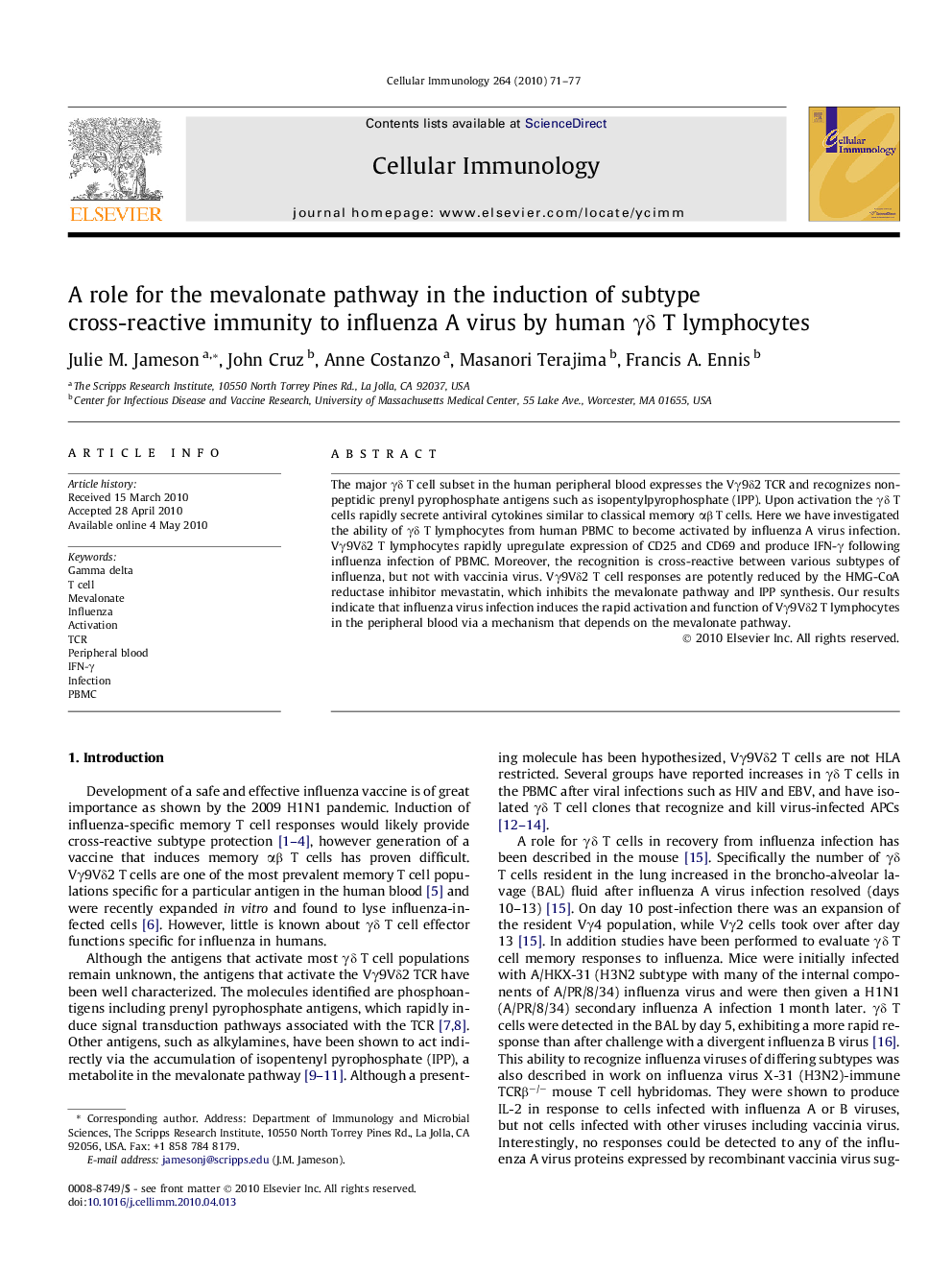| Article ID | Journal | Published Year | Pages | File Type |
|---|---|---|---|---|
| 2167613 | Cellular Immunology | 2010 | 7 Pages |
The major γδ T cell subset in the human peripheral blood expresses the Vγ9δ2 TCR and recognizes non-peptidic prenyl pyrophosphate antigens such as isopentylpyrophosphate (IPP). Upon activation the γδ T cells rapidly secrete antiviral cytokines similar to classical memory αβ T cells. Here we have investigated the ability of γδ T lymphocytes from human PBMC to become activated by influenza A virus infection. Vγ9Vδ2 T lymphocytes rapidly upregulate expression of CD25 and CD69 and produce IFN-γ following influenza infection of PBMC. Moreover, the recognition is cross-reactive between various subtypes of influenza, but not with vaccinia virus. Vγ9Vδ2 T cell responses are potently reduced by the HMG-CoA reductase inhibitor mevastatin, which inhibits the mevalonate pathway and IPP synthesis. Our results indicate that influenza virus infection induces the rapid activation and function of Vγ9Vδ2 T lymphocytes in the peripheral blood via a mechanism that depends on the mevalonate pathway.
